Establishing a puppy training schedule for your 8-week-old puppy is vitally important.
It makes sure your 8-week-old puppy develops certain patterns of behavior and knows what to expect, but also so you don’t end up being run-ragged 24×7 by puppy training.
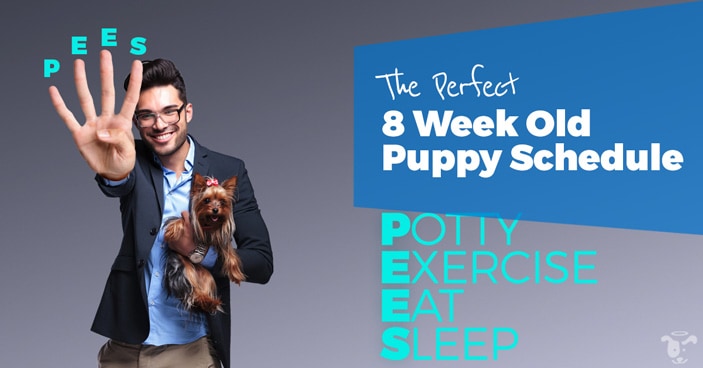
Key Takeaways from this article:
- It's important to establish a regular feeding schedule for your puppy.
- Be sure to provide your puppy with plenty of opportunities to potty after meals
- It's important to choose the right food for your puppy's age, breed, and activity level.
- Be sure to monitor your puppy's food intake and body weight
Table of Contents
Why Your 8-Week-Old Puppy Should be Following a Schedule
Puppy training during the first week may sound daunting, but it must be on top of your new puppy agenda. Like babies, puppies must be taught, too.
It’s the first few weeks of a puppy’s life at home that create the relationship you’ll have with your dog (and new friend!) for life.
As a new puppy parent, if the start of puppy training is enjoyable, and you’re not too sleep deprived or ripping up smelly carpets or cursing when you find a tatty slobbered shoe, you will only love your dog more.
The whole dog training experience will feel new to you and your week old puppy, so frustrating feelings might pop up as you train your new puppy.
While we work with puppy development, it will count if we remember that the goal of every training is to set our pups up to win and not to fail. A little preparation and routine are required for this to push through.
An 8 Week Old Puppy Needs Assistance—A Schedule Based Around Somebody Being Present All the Time can Contribute Greatly to Puppy Training Success
I strongly recommend that you arrange to be home for a while to start training and establish some routine with your puppy from the very start. As you will see from the puppy training schedule below the training starts on Day 1 at 8 weeks old!
Of course, you don’t need to follow everything in the schedule I follow. Ultimately, the best guide to making a new pup schedule is your dynamic with your puppy. It will be less stressful if you adapt to a schedule that suits you and your situation.
The 8-Week-Old Puppy Schedule That Worked for Me
Puppy training my dog Moses takes a lot of testing and trying out training methods that would get me and him to bond while also creating habits and behavior patterns he can pick up while he explores new things with me.
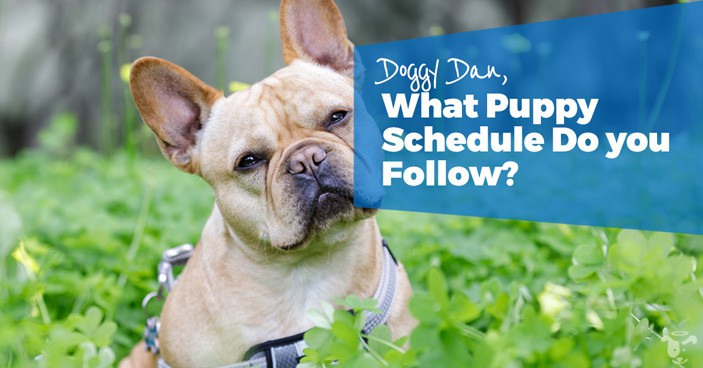
Here is my schedule that I have stuck to with great results. I have broken the schedule into 4 different activities.
1. Eating
As for his new puppy eating schedule, he is fed three times a day. Eating is a major part of his house training.
I often tell new puppy parents to observe their puppies during mealtimes, as some might show early signs of food aggression. If you do notice the signs, you can correct the behavior quickly with this free guide on how to make dogs feel safe during mealtimes.
2. Puppy Potty Training (Toilet)
Rather than mark down every toilet stop or the toilet area, I shall simply say that when he is up and about he is taken outside every 30 minutes. He can sleep during the day for an hour or two without going.
During the night I marked his toilet stops. Moses usually does a poo within an hour of each meal, and also during the night. After his first poo he will often go again within 5 minutes so it is best not to race back inside!
To summarize my dog’s daily potty training, Moses will go to the toilet area approximately 25 times each day, which is why it is great if you can be around to place him on the grass each time!
3. Puppy Exercise and Activity
This is when he is simply up and about and not necessarily moving around. Usually it will consist of a 10 minute casual walk around the garden followed by 20 minutes of awake time interacting with Peanut and Inca, ourselves or his toys and then a 30 minute lie down… possibly snoozing!
4. Puppy Sleep
A combination of crate training and rest for Moses.
8-10 Week Puppy Schedule: Where to Start
Like babies, new puppies need structure in order to thrive as they go. Here are some of my tips for the puppy parent who wants to follow a solid schedule for their dog.
A little disclaimer: The new experiences with your new dog can be overwhelming.
In an effort to provide you with the most comprehensive sched for pups as much as possible, I’ve packed a lot of information into an hour-by-hour doggy schedule that puppy owners can follow.
They look like a lot, and the schedule might even make you think “How is it humanly possible to stick to such a routine week after week?”
I want you to know one thing before you scroll any further…
I 100% understand that you have a life outside of your puppy. Between kids and jobs and other activities, it’s not always possible to provide your new puppy with 100% of your attention week after week, month after month.
It will feel overwhelming, but foregoing training dogs to follow a schedule can bring in more problems in the future.
The goal of this schedule isn’t to overwhelm you. It’s to give you a solid framework that you can work off of. It’s designed to help educate you on how to best set up your puppy’s day with everything from feeding schedules to puppy potty training.
My advice is that you do as best as you can to stick to the schedule when you first bring your new puppy home. And, as your puppy gets older, understand that they WILL become more independent and require a less structured schedule.
You may not be able to follow this schedule completely when you start training, but I guarantee it will be an incredibly helpful resource that will enable you to set your puppy up for success as you make the transition into being new parents!
I know training a new puppy can be challenging, and you’re sure you’re going to need all the help you can.
This is exactly what my Puppy Coach™ Program is all about: empowering new puppy owners in training their dogs using the best strategies.
Doggy Dan’s 8-week-old Puppy Schedule for New Puppy Parents: Simplified with the PEES Structure
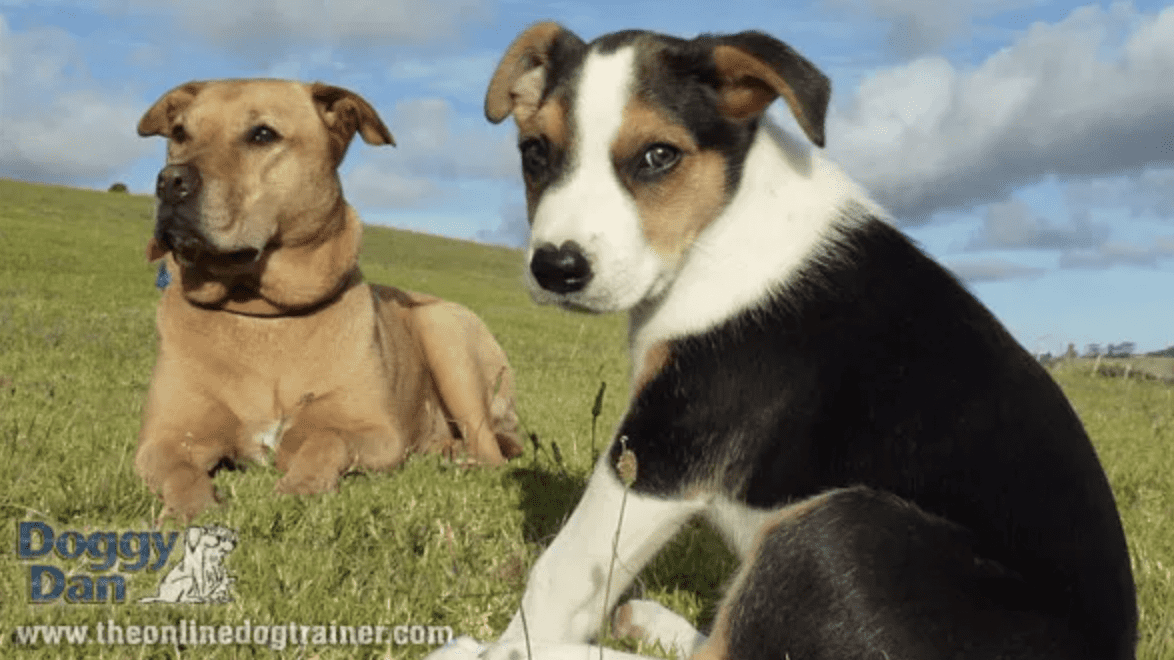
Browsing for suggestions for pup schedules online can easily leave you overwhelmed. Some schedules for week old puppies introduce so many new things – learning them all gets so complicated!
There’s no wonder why puppy parents sometimes just give up which leads to them missing out on the most crucial time of a dog’s life.
The Good News: You can Simplify Your Puppy’s Day-to-Day Schedule with the PEES Structure
Most puppies thrive in the PEES structure. The puppy home schedule structure also breaks down the four most important parts of your puppy’s day, and the order in which these activities should occur to set your puppy up for success.
The structure includes the following categories:
- Potty
- Exercise
- Eat
- Sleep
As you’ll find out, most puppies will have a schedule that revolve around toilet training breaks, so it’s my hope that you will find this acronym easy to remember!
Down at the bottom of this article, you’ll find my hour-by-hour schedule that clearly outlines when these activities should take place!
Jump to the 8-Week/9-Week/10-Week-Old Puppy Schedule Now!
Schedule for 8-Week-Old Puppies: A More Detailed Walk Through
But, before I share the schedule with you, I wanted to provide some really important schedule and training information that correlates with each letter (PEES).
It’s my hope that you can “plug and play” with these activities in correlation with the schedule to keep your puppy focused, engaged, and on a well-rounded system. Check it out now.
The PEES Structure for Young Pups: Set Up Your Puppy for Success
Looking at the schedule for your young pup above, it’s easy to piece together what your puppy should be doing throughout the day from eating, potty breaks, through sleep training.
A quick note: you might come across dog training myths that can stall your puppy’s milestones. We busted these dog training myths in this FREE REPORT so you can train your pup right.
That being said, there are a bunch of important subcategories within each of the main topics. For example, “How do I safely leave my puppy alone to rest during Sleep time?” or “What do I need to know about feeding my new puppy meals during Eating time?”
Let’s break down the four main categories so I can provide you with some incredibly important information on each topic that will help set your puppy up for success…
(P) Potty: A Look Into My Best Puppy Toilet Training Practices
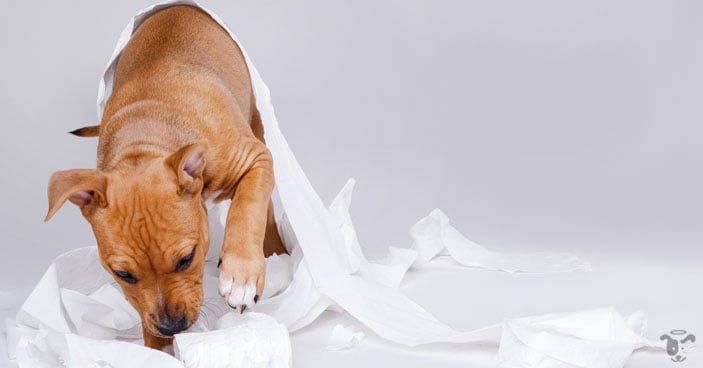
Potty training most puppies is something many puppy parents struggle with. However, when you make potty breaks a regular part of your daily routine, it becomes much easier for your pup to master toilet breaks in appropriate places.
Your little pal is still not capable of holding his/her urine for long periods of time, so it's imperative that you take your baby dogs for a toilet break right after they wake up.
Here are some things you shouldn’t miss when you’re trying to perfect toilet break training with your puppy:
- It’s not ok to sleep in and wait until 10 AM to give your pup potty breaks. If you do so, I guarantee you’ll become frustrated as you wake up to potty accidents all over the house.
- Before you get your cup of coffee, watch the news, get showered for the day, etc. get your puppy outside for a toilet break immediately. If the outdoors is not available, puppy pads will do.
- For their toilet break, bring your puppy to the area you want them to potty in, and give your pup ample time to do their business. It’s likely that your pup will use the restroom pretty quickly, but if they don’t (as some puppies are easily distracted) give your puppy enough time (at least 15 minutes) and some encouragement (perhaps the command “Go Potty”) while you wait.
- After your pup is done with potty breaks, reward them with a pat or maybe even a treat as your new pal might need a little extra reward at this young of an age.
For the most part, potty training isn’t difficult. It’s all about being proactive and setting your new pup up to win. Yes, puppy pads and grass patches (I recommend potty grass, too!) are allowed during the first few weeks of potty training. However, puppy pads should not take us away from the real training as they are not the best solution.
Potty training – admittedly – is one of the new experiences you can have a hard time with. If you find yourself needing some extra guidance on potty training, and how to make sure each toilet break works for your new pup, I encourage you to sign up for my FREE potty training video course here!
And to ensure you’re providing your pup with enough potty breaks throughout the day, please download a copy of my Puppy Potty Time Chart where you can log the times you’re taking your pup out for a bathroom break whether outdoors or on puppy pads.
(E) Exercise: Fun Activities to Keep Your Puppy Engaged and Moving During the Day
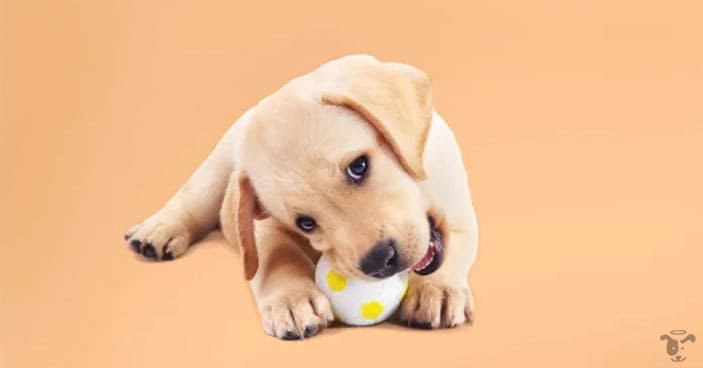
Like toddlers, most puppies are full of energy and their daily routine should include ways for them to be kept active during the day so they don’t go crazy or become destructive.
Thankfully, there are many ways you can keep your puppy active and engaged…and many of the activities I’m about to share also contain various puppy training principles.
Check out the following activities you can plug into the “E” hours of the puppy training schedule you're following.
Socialization
All dogs have social needs. And most puppies have a desire to play and interact with other dogs.
That being said, socializing a dog with other dogs at an early age is an important part of puppy development. When you include this as a part of your puppy training, your pup will know how to play and interact with other canines appropriately.
Socialization also plays a big role in preventing dogs from becoming aggressive. Lack of interaction with people and fellow canines is one of the reasons why dogs bite.
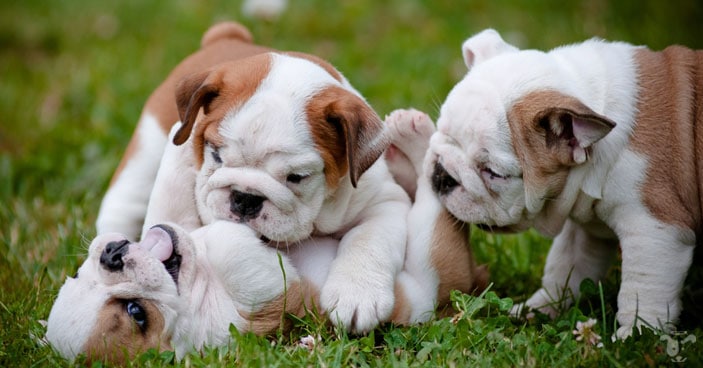
Knowing how important socialization is, I recommend that you start finding opportunities to socialize your pup as soon as you can! The best part…it’s a fun activity that’s not only a good inclusion to puppy training, but can also help tire your pup out as he/she is full of all that puppy energy (this can help your dog win a new friend, too!).
Of course, there are a few things you need to think about before exposing your puppy to other dog’s. For example…
- Is your puppy properly vaccinated so he/she doesn’t pick up any dangerous illnesses while playing with another dog?
- Do you personally know the dog you’re introducing your puppy to/know that the dog is friendly and safe?
- Have you put safety measures in place to ensure both dogs can remain calm and happy during their playdate?
There’s a lot that goes into socializing a puppy to prevent behavioral issues with other dogs down the road. If anxiety around other dogs come up, I suggest you start with positive reinforcement until they feel adjusted.
Because this is such an important topic, I want to share with you 3 videos from my Project Moses Video Diary so you can see first hand how I handled socialization with Moses during three different stages of his early life (I filmed the raising of my puppy, Moses, from 8 weeks to 1 year and created a video-diary course — these are just a few of the 70+ videos covering the important stages of his first year that you can access in my Puppy Coach™ program).
Watch the progress of Moses and socialization in these 3 videos below, as he grows from 10 weeks to 8 months (in the Puppy Coach Video Diary, there are so many more videos in between these stages that show vital nuances in his training and puppy development).
Stay connected with Dan’s dog and puppy training updates. Subscribe below, it’s free.
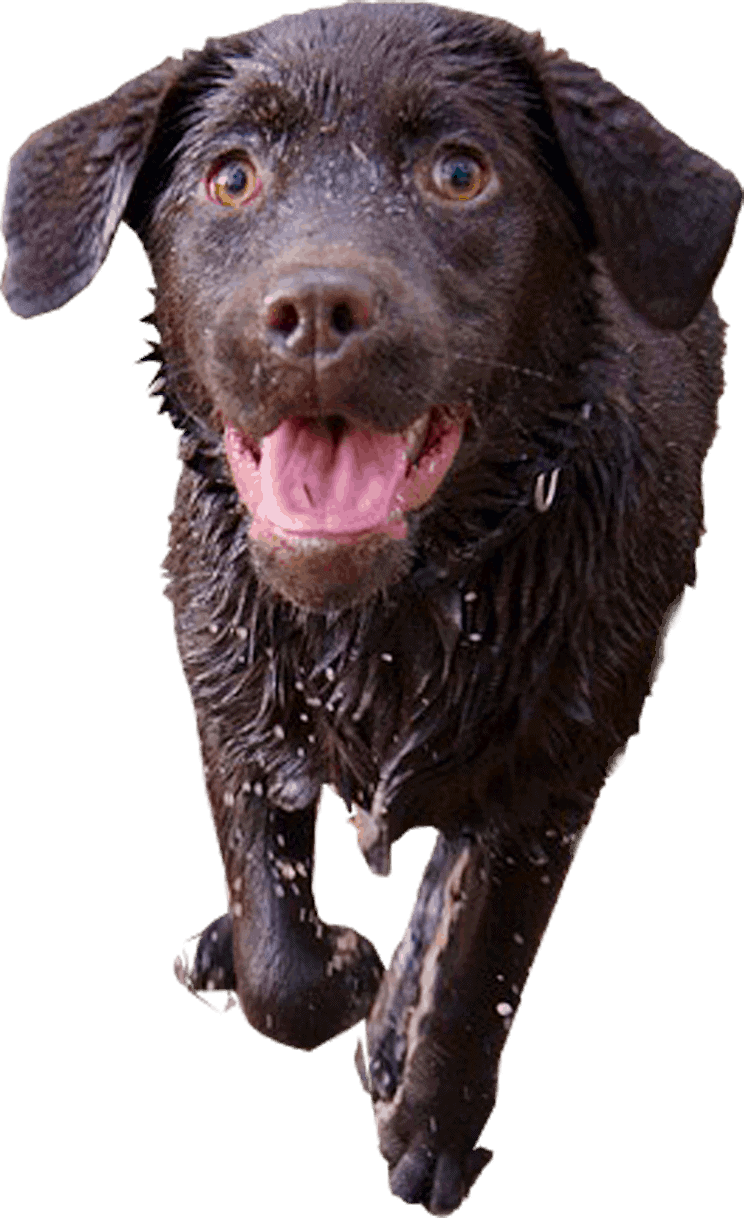
Stay connected with Dan’s dog and puppy training updates. Subscribe below, it’s free.

Playtime
Having a handful of puppy toys on hand makes it easy to keep your pup entertained throughout the day.
Whether you decide to take your puppy outside for a game of fetch or monitor him indoors with a puzzle toy, there are many ways you can keep your puppy both mentally and physically stimulated.
Here are a few of my favorite toys to have on hand…
- A ball/frisbee for a game of fetch.
- An antler bone which provides a constructive and natural chewing source.
- Chew toys that aren’t tough to baby teeth
- A puzzle toy for mental stimulation.
- A kong you can fill with a treat to keep your pup busy.
- A soft, plush toy…some puppies love carrying around a cuddly toy!
- Puppies are incredibly smart! When you provide them with toys, they quickly learn what they are/are not allowed to play with in your home. For example, giving your dog a bone or some chew toys to chew on should help keep your pup from chewing up your favorite pair of slippers.
As your puppy grows, you will encounter challenges where they chew toys excessively. When puppies start to grow adult teeth, the urge to chew toys increases. I encourage you to take a look at an article I wrote on how to get your dog from chewing on and destroying your stuff… Read it now!.
Leash Training
Whether they’re 8-weeks/9-weeks or 10-weeks-old, it’s likely that most puppies will struggle to walk on a leash–let alone be able to walk very far before they decide to take a nap on the grass!
That being said, leash training is something you should start right away with your puppy in order to teach him/her proper outdoor walking manners. Knowing the purpose of the leash is also a crucial part of obedience training and puppy training. You will need all the positive reinforcement you can give.
Visit this post for tips on how you can help puppies love walking!
You can simply start in your backyard getting your puppy accustomed to using a leash with a little stroll around the grass. As your puppy gets older and a little more aware of what going on a walk means, I encourage you to use the resources below.
My Ultimate Guide to Leash Training (AKA, How to Not be Stressed When a Leash Triggers Your Dog)
(E) Eat: Setting Your Pup Up for Success at Mealtime
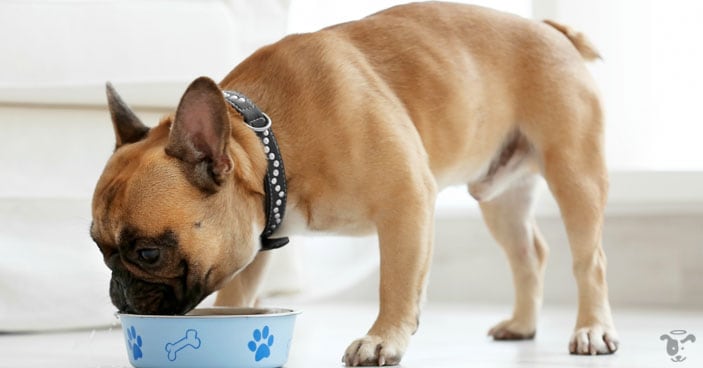
Feeding your puppy might seem like a simple, straightforward part of owning a dog. However, most people don’t realize how big of an impact food can have on various aspects of puppy training – no matter what the puppy’s breed!
I recommend setting up a designated mealtime area where your dog can recognize it as a safe space for mealtimes. Always make sure to change your puppy’s water so it’s fresh and clean and serve his/her puppy food in a designated dog bowl.
You can help your puppy remain calm around food by asking them to sit and wait until they’ve been given the command to go ahead and eat. Of course, this is more difficult with an 8-week-old puppy, but it’s not impossible to set boundaries so your pup isn’t jumping all over you.
Once you’ve given your pup their food, you can practice gently giving your pup a pet while they eat or even picking up the food bowl once in the middle of their meal time.
You might feel like you're a pest hanging by him while he's eating. But, interacting with a puppy while they eat can help negate aggressive food behaviors down the road while gently reminding your pup that you are the provider.
A puppy’s bad relationship with food can lead to aggression. My Puppy Coach™ Program will help you build healthy food habits, and prevent terrible behavioral issues.
Like I said, don’t be an annoyance as it’s not fair to pester your puppy while they enjoy a meal. But a little interaction is very helpful when it comes to training a puppy to be gentle with food.
Setting your puppy up for success with food is so important I’m going to share an exclusive video with you from my Project Moses Video Diary—one of many videos within a paid program that show you step-by-step how to work with your new puppy as I train my puppy, Moses.
Moses is 5 months old in this video. However, the principals are the same regardless of whether your puppy is 8 weeks or 8 months.
Watch the video now…
Frequency of Meals
Transitioning from mother’s milk to puppy food is a big change for your new dog's stomach. This transition is often made easier when you feed your puppy multiple smaller meals throughout the day.
That’s why you’ll notice 4 distinct feeding times on my schedule for your puppy! Of course, as your puppy grows, their feeding needs will change and become less frequent.
I recommend you talk to your vet to get their advice on what’s best for your individual puppy. But, you’ll likely find that most professionals stick to a feeding chart similar to the one I recommend.
I know that determining how much to feed can be tricky for both old and new puppy parents. Good news is that I made an easy-to-follow guide that will tell you how much you should be eating as they grow…
↓ Download Doggy Dan’s Puppy Feeding Chart ↓
Puppy Food Options
It’s likely your vet has already advised you on the best food options for your new puppy. However, if you’re looking for some homemade options for puppy food, I encourage you to check my resources below…
Learn more about healthy homemade dog food recipes here!
Discover 7 special treats that canines crave!
(S) Sleep: Providing Your New Puppy with a Safe Spot to Sleep and Relax
Just like a new baby, your puppy is going to require a lot of sleep during their first year of life because it will aid a lot in their growth. Therefore, it’s important to schedule time to let your puppy sleep or rest without being bothered by anyone…including other animals in your home.
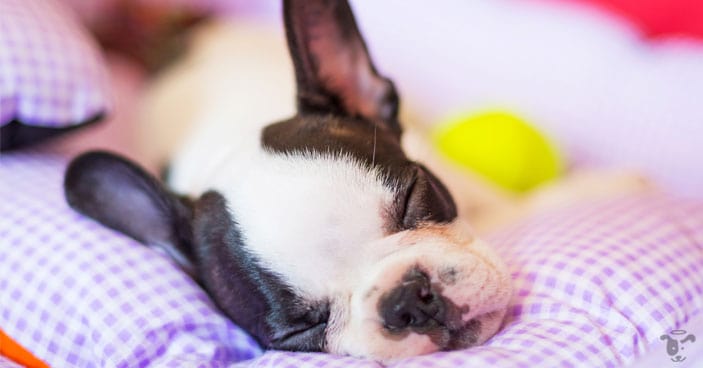
Setting Up a Safe Sleep Space
It’s essential that you set up a safe space where you can leave your puppy without worrying about them getting into trouble while not being supervised.
I have a video that I want to share with you that I’ve pulled directly from my Project Moses Video Diary. In this video I will show you how I set up a safe space for my puppy Moses so you can set up a similar space in your home.
Take a look at Moses’s living arrangements at 8-weeks old!
Making Your Puppy Feel Safe
Your tiny little puppy probably isn't ready being left by themself. After all, a puppy is just a baby who wants his/her “mommy” to keep them safe.
However, the more you practice sleep training, puppy training, and spending time away from your pup, the easier it will become for both of you! The key is to ensure your puppy feels safe, and not to give into those sad little squeaks every time you leave the room.
If you’re starting crate training, always keep an eye on how they respond. Crate training can cause anxiety to young dogs, so assess your dog first before moving to the next step.
This is such an important part of your puppy’s schedule that I filmed the steps I took on leaving Moses alone when he was just 8 weeks old. I’m sharing this exclusive video from my Project Moses Video Diary in hopes that it will help you avoid any problems or serious behavioral issues (like separation anxiety) in the future!
Watch now!


Overnight Crate Training
The long overnight bedtime haul can be challenging for puppies…especially when they are left alone in the dark and can’t see where you are.
One tip I have—if you have a puppy that howls and whines at night— is to change your dynamics on how you practice crate training. You can incorporate crate training slowly by moving your puppy’s crate out of your room night after night. Each evening, move your puppy another foot or two away from your bed, until your puppy is eventually in a different room.
Your puppy won’t notice the gradual movement and crate training is a good way to transition your puppy to being more independent!
Note: it will take weeks for your dog to get the hang of crate training, so it’s always better to take it one step at a time. Start crate training by offering small treats first. Talk to them before moving them to their crate and use positive reinforcement to remove their anxiety.
Click here to download the best crate training tips I have learned through years of dog training.
But Doggy Dan, What About Obedience Issues?
Now, I understand that not all puppies will wiggle their tails and instantly follow your instructions.
You might find yourself dealing with a headstrong puppy and wondering “How do I get him to listen?”
Obedience plays a big part in the success of your puppy schedule and your journey as a parent of a dog.
There are a few things you can do to turn a stubborn puppy into one that trusts in and listens to you!
Get your FREE guide “5 Things You Can Do Today to Make Dog Ownership Easier.”
Doggy Dan’s 8-Week/9-week/10-week-Puppy Schedule
Now that we’ve covered everything that goes into my suggested schedule for 8 week old puppies, I want to share with you an hour-by-hour outline you can use to structure your day!
Be sure to print off the outline and hang it somewhere you can see it in your home so you can use it as a daily reminder of how to structure each day for your new puppy!
Simplifying the Schedule for an 8-Week-Old Puppy – The Puppy Coach Program
I just threw a lot of information at you regarding the suggested day-by-day schedule for a new puppy.
You got this! Even if It’s possible it may all even seem a little overwhelming! That’s because there’s a lot that goes into the responsibility of bringing a new pup into its new puppy home.
However, if you break it down into your puppy’s 4 main need categories (Potty, Eat, Exercise, Sleep) you can ensure your new puppy gets everything they need to thrive during their first few weeks in your home until your puppy grows bigger.
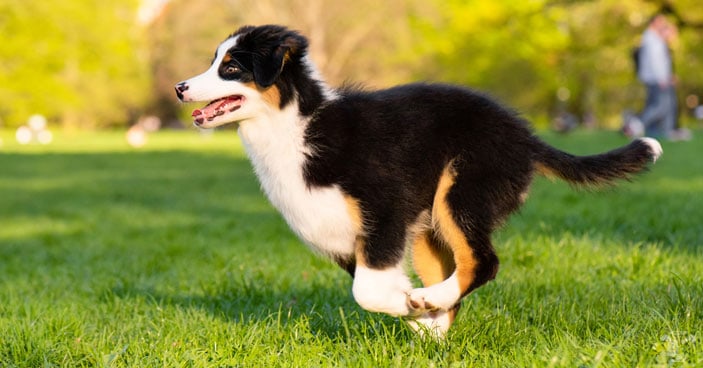
The harder piece of the puzzle is adapting your schedule as your puppy grows. After all, an 8-month-old puppy has vastly different needs than an 8-week-old puppy.
So then, what resource do you use once your puppy hits 4 months, 6 months, or 8 months old? How do you cope up with all the fast-paced changes happening to your dogs?
The best way to keep up with your puppy’s ever-changing needs…my comprehensive Puppy Coach training program.
The Puppy Coach training program is a step-by-step instruction manual that provides EVERYTHING you need to know about taking care of your puppy during his/her entire puppyhood.
It’s a roadmap that covers everything from lessons on basic obedience training to how to manage serious dog behavioral issues, and contains 70+ videos on how to set your puppy up for success as they age into adulthood.
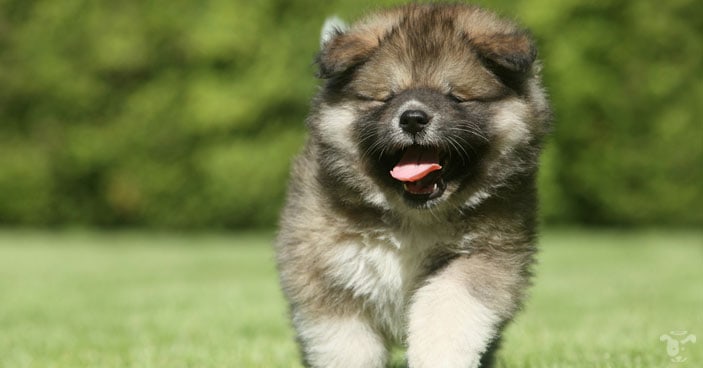
And I can guarantee that it’s the only resource any new puppy parent needs because it contains 2 of my most powerful puppy training resources—my Project Moses Video Diary AND The Perfect Puppy Program.
So what’s your next step as a puppy parent? I encourage you to at least take a look at the program below and see how it can save you from all the puppy training dilemma…


I wish you the best with your new canine companion. Here’s to many years of happiness and good health!
Cheers,



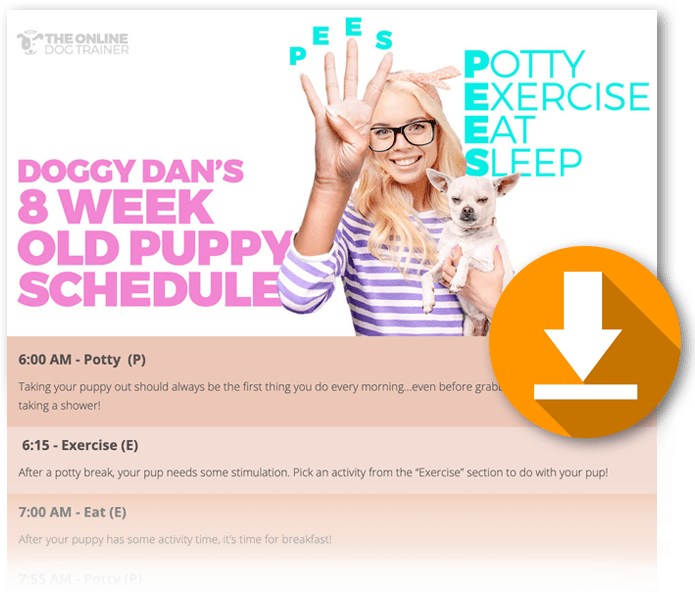
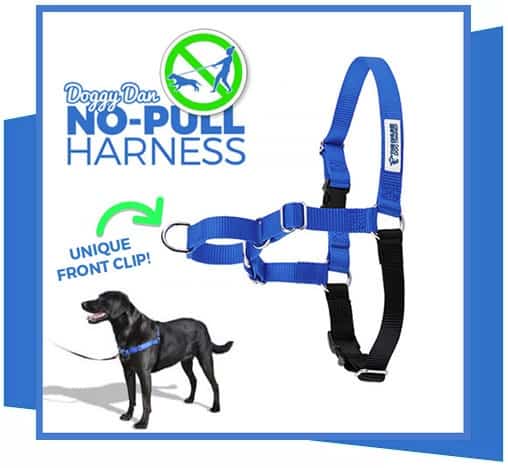
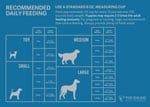
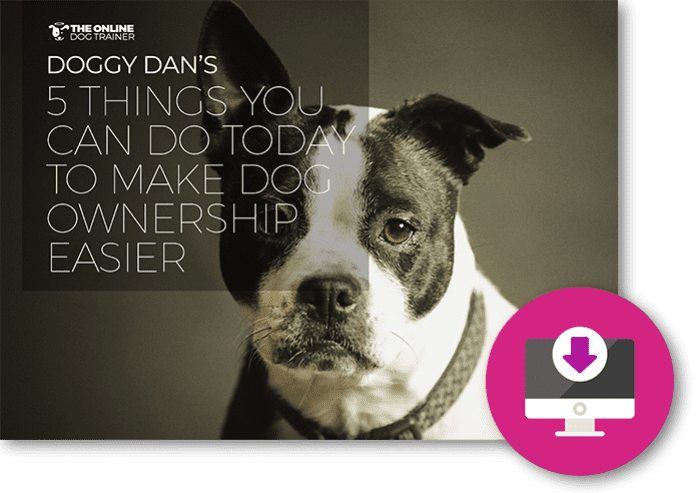

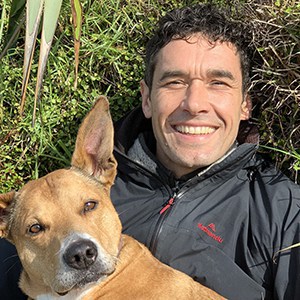

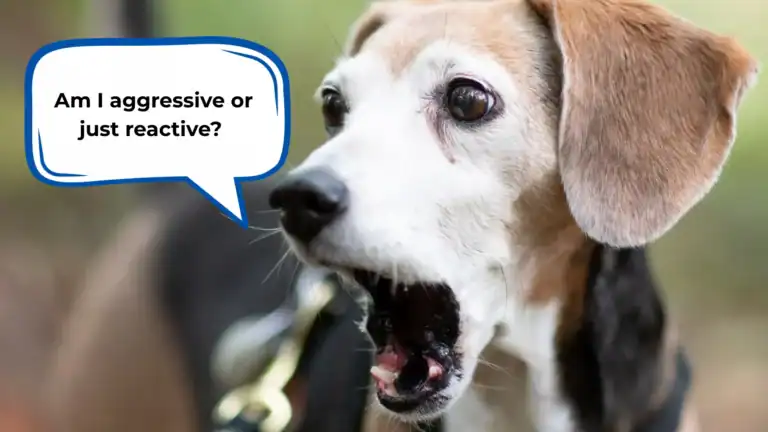
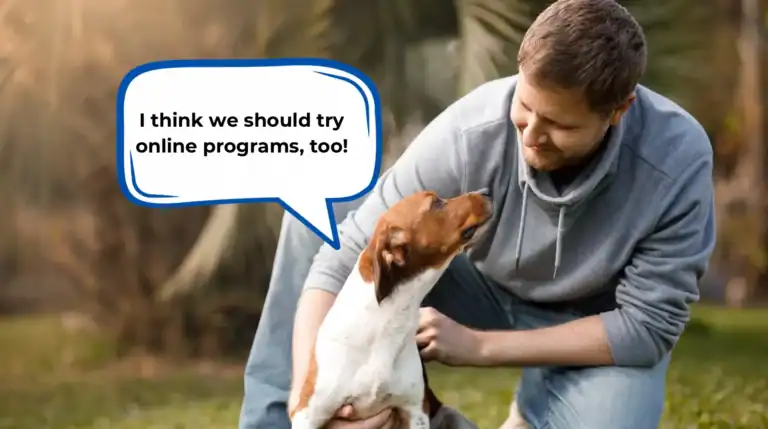
112 Responses
Hello,
I have a 10week old border collie. She is biting constantly, and we have tried many things to control this. I know this is a typical puppy behavior, but I want to get it under control. Any suggestions?
Hi Danielle…I have just the right program to help with this issue….which is really common for puppies! My website TheOnlineDogTrainer.com shows you very clearly how to overcome mouthing/biting in puppies…maybe take a quick look…its a $1USD trial for 3 days…All the Best Doggy Dan
Hi there, our 12 week old puppy is waking around 5am and we’re keen to stretch this out a little to 6.45am when we get up (I put him back in his crate until then and he only whines a little but I’m awake by this stage and don’t go back to sleep). He has good naps during the day and good stimulation, but is very tired early in the evening – he is often asleep right after dinner at 6.30pm. We take him for a few toilet breaks before bed, but should we keep him awake until 10pm rather than let him sleep? The 5am wakeups are hard – will this get later with age? I was also wondering how on earth you entertain a puppy from 8pm-10pm – this is the only time in the day when I get puppy-free time and I’m reluctant to give that up (I work from home – although that has become impossible since we got him). I’m exhausted! Thanks
Hi Sarah….Have you tried placing an old blanket over your puppy’s crate to create a dark a cosy ‘den’? If you need to take your puppy out to toilet in the morning then try to limit how much you interact with him so that he finds it easier to go back to sleep. If you don’t want to get up to toilet him then providing an option for him to be able to do this, a toilet training pad, may mean he doesn’t wake you. Try gradually extending the time you get up by 10-15 minutes and he should start to adapt his routine. All the Best, Doggy Dan
Hi doggy Dan, I have a 10 week old puppy and she is a toy Aussie. I am wondering how I will get her to relieve herself in winter this year. Where I live (Canada) it snows lots.
Right now she is getting better at potty training little by little, but she still needs tons of work and it’s early May.
Any suggestions on what to do outside so she doesn’t freeze to death? Thanks!
Hi Eva, the best piece of advice I can give you is to wait and see what happens. Lots of dogs have no issue toileting in the snow and colder weather…it;s the rain they often don’t like! Making sure she is warm and maybe even has booties to protect her feet may work if she is reluctant to go out in the snow. However if you accompany her and maybe take her out on-leash, she will likely do what needs to be done. If things get really desperate then you can consider training her to toilet on a training pad during the older months and then resume your normal routine when it’s warmer. You still have plenty of time to work on her toilet training before Winter hits, she’s still very young and it’s normal for some puppies to need a little more patience here. Best, Doggy Dan
Hi, my pup is 8 weeks and have ticks, what can I put on hos body .. He is a small Jack Russel.?
Hi Andre…it’s best to consult your Vet about parasite prevention and protection as they will be familiar with the more common parasites in your area. Best…Doggy Dan
We have just got a 9 week old Westie. I work 2 minutes from home and can bring the puppy to work with me. I want to get him used to being on his own and don’t want him to become dependent on me being with him the whole time. Eventually I will leave him at home and just see him at lunch times. However, I am wondering whether he is just too young to be left alone at this stage? Should I be leaving him at home and going back every couple of hours to see him, or should I keep him with me at this stage? I don’t want to distress him by leaving him, but I also want him to get used to it.
Hi Rebecca! Helping a new puppy settle into our routine and their new environment can take a little flexibility in the beginning. It’s not usual for a young puppy to spend long periods of time on their own as they would normally be with their Mum, siblings and the rest of the pack. So some puppies can find being left alone incredibly challenging, especially if they are still getting used to their new home. It would be a good idea to have you or someone check on your puppy during the day just to make sure he is ok. Restrict the space he has access to and leave down toys, water and a place for him to toilet if he needs to. Having a puppy pen around his crate can be a good option or placing him in a room where he is contained and is not able to get into anything he shouldn’t. I also like to leave a radio playing at low volume just to break up any silence and background noise. Good luck! Doggy Dan
Any tips for how to curb puppy humping?
Hi Sydney…it really depends on what is motivating this behaviour and the scenario in which it happens. Often puppies will hump to try and gain attention, to show dominance or just as a result of them maturing and developing new skills. Whatever the reason your response should be the same….make sure not to say anything to your puppy or make a big deal about the behaviour, this can be really counterproductive. If your puppy is humping you then gently move them away, or you could immediately walk away from them. If they persist and are being a real pest then pop them in their pen/puppy crate for a brief time-out.
If your puppy is humping other dogs then gently move your puppy away, other dogs would likely see this as impolite behaviour and they may try correct your puppy…..which is ok as long as they don’t do it in an overly aggressive manner. All the best, Doggy Dan
I have a 8week old blue nose pitbul. Im a bit worried because his poop seems to be watery like diarrhea. He’s eating pur blue puppy food. Could it be that the food is not going down well? PLEASE HELP!!!
Hi Kaitlynn,
Puppies can experience a little diarrhea when they move into their new home, especially if they are switched to a new food or seem a little anxious as they settle in. However diarrhea can be quite serious in young puppies, especially if occurs over a few days, and my advice would be to contact your Vet for advice. There is risk of dehydration, as well as the possibility that the cause of the diarrhea may be something that needs urgent medical attention. I hope he starts to feel better soon. Doggy Dan
I have a new 8 week old cavapoo that doesn’t seem to sleep or let me sleep unless I sleep with her (on the floor or the bed). I tried ignoring her but she cried for hours later stoped and started shaking. Every time I get her to sleep I carry her back to her bed where she has a little nightlight so she doesn’t get scared. I need advice please, I don’t know what Im suppose to do.
Hi Grace…helping a puppy to settle into their new home is can be a little rough for some puppies. Remember that they are getting used to life without their Mum and siblings, and they find themselves in a strange environment with people they don’t know. The first few nights are the toughest and I generally like to focus on a positive transition for the puppy, which involves sleeping near your puppy to be a calming presence if they need it. You can bring your puppy’s crate, pen or bed into your room and allow them to sleep there until they seem more settled….or you can sleep on the couch and have them near you. If your puppy becomes distressed then a calm and gentle hand on their side, while limiting past and too much verbal reassurance, is really effective in settling them back to sleep. Generally after a few nights they will have settled and you can resume with your preferred sleeping routine, but do expect a little unsettled behaviour when you do. My website TheOnlineDogTrainer.com shows you very clearly how to achieve this…maybe take a quick look…its a $1USD trial for 3 days…all the best Doggy Dan
Hi, I have a 9 week old Labradoodle puppy. She doesn’t seem to be eating much. I switched her from Purina focus which the breeder was feeding her to Lucy pet formulas for life dog food. She seems to like it, but is not eating much. She eats maybe 1/2 cup a day. Is this normal for a dog at this age?
Hi Eileen,
When a puppy goes to their new home their appetite can sometimes be affected, especially if the food they are eating suddenly changes. Activity levels, age and the breed size will also have an impact on how much food she needs to eat in a day. Usually there will be a feeding guide on the side of the bag of dog food, and then you can just keep an eye on her waist line to ensure she is not losing condition or getting a bit plump. If in doubt always contact your Vet for guidance. Best, Doggy Dan
Dan,
We have a pair of 10 week pups and are trying to deter littermate syndrome. When we dont have them awake and active, eating or going potty, should we keep them in their kennels? We have them seperated and are working with them one on one. I think we learned about littermate syndrome early enough to catch it thankfully. Do you have any advice on a schedule for us?
Hi Mary,
I know ‘litter-mate syndrome’ is something that dog owners are warned about but I have a bit of a different view on this theory. I would argue that if you took two similarly aged puppies, from separate litters, then you could potentially experience exactly the same issues. Also, think about a wolf pack, comprised mainly of siblings and other related family members (aunts, uncles etc) and they cope perfectly well! The issues isn’t really that they are siblings, it’s that they are two puppies at exactly the same developmental age who are both learning how to behave appropriately…at exactly the same time, which means they can be a bit of a handful! As long as you are giving them the right information, to help teach them which behaviours are appropriate and which ones are not, then you will have no trouble raising two happy and well adjusted dogs! It’s still a great idea to spend some quality one-on-one training time with each of them but don’t feel that you have to deliberately separate them all the time or at night. They will draw comfort from being with each other, especially when you are out of the house. I love seeing a good bond between dogs living together as it means they have someone who understands them like no other.
My website TheOnlineDogTrainer.com has a detailed Puppy Training section that covers most of the common puppy milestones and behaviours…maybe take a quick look…its a $1USD trial for 3 days…all the best Doggy Dan
My Two 11 Week old springers are very energetic and hyper and I find it hard to put their leads on when I go walkies how do I prevent this
Hi Patrick,
When teaching young puppies how to behave in certain situations, the best approach is to dedicate some time to doing a little practice. So if putting the lead son your puppies is a bit chaotic then I would actually recommend practicing this stage of the walk, but when you have no intention of actually going anywhere. This means that you can practice it multiple times a day, which then gives your puppies plenty of opportunity to learn what is expected of them. One thing to look out for is over-excited behaviour, you want your puppies to be calm as it will be easier to attach their leads. Grab some tasty treats and practice calling them to you as the first step, maybe have the leashes on the ground next to you or in your hand when you do. If they get too excited then stop the lesson, wait for calm and then try again…it’s important they realise that over-excited behaviour doesn’t work for them and that calm behaviour does. When it comes time to put their leads on make sure that too much fussing with the clip/collar is kept to a minimum. I like to have my thumb ready on the lead clip and then all I have to do is quickly find the loop on their collar and calmly clip it on. Again, you can practice just this stage a few times until you get it right! Hope that helps, best Doggy Dan!
Hello! We are getting ready to bring home a mini aussie in a few weeks, and we have been debating over whether or not it is okay to take him outside at 8 weeks. We live in an apartment complex, so we don’t have a private yard. There is, however, a large shared outdoor space within our gated apartment complex. He won’t be finished with his full rounds of vaccinations until 14-16 weeks of age, so we are concerned about protecting him from disease. But we are also concerned about training him early to go outside to toilet. What is your opinion on this?
Hi Katie,
You do need to be really careful about taking young puppies out into public areas if they have not had all of their vaccinations. Any area that is frequented by other dogs would be a potential risk to your puppy if there are viruses in your area. It would also be a good idea to run this one past your local Veterinarian as well. They will know how great the risk of contracting a virus is in your area. In my opinion it’s far better to be safe than sorry!
If you are concerned it will interfere with toilet training try not to worry about this too much. Once your puppy is fully vaccinated you will be able to transition to a good outside toileting routine by being consistent and proactive in regularly taking him outside to toilet and praising him when he gets it right. Best…Doggy Dan
Hi Doggy Dan – I have an almost 10 week old pup. I’ve had him a week. He has had intermittent bouts of diarrhea. Just when I think he’s turning the corner, another bout. he can be fine for hours, but after eating, when he has to go, it seems he has to go three times in a half hour period. unfortunately the breeder gave me very little food, it was food impossible to find so I matched up the ingredients. I surmise this change is the cause, along with new environment stress.. he seems fine otherwise and I’ve added some rice and pumpkin.. but it’s like every other poo is diarrhea. I’m thinking of giving no food for a period of time.. he has grown in just a week and has been a healthy eater. I was going to give him water and boiled rice water. he has been dewormed.. I know the cause can be parasites but i’m not seeing any other signs.
Hi Angelique, it’s best to visit your Vet if diarrhea is ongoing or regular. It can indicate there is a health issue and with young puppies they can become really unwell if it goes on for too long. A couple of other factors may be stress related to settling into a new home, or transitioning your puppy onto a new food too quickly. It is recommended that if you are going to change the food you are feeding a dog or puppy, that you do so gradually. To do this you simply feed a little less of the old food you are feeding, whilst adding a little of the new food you are transitioning to. Each couple of days you decrease the older food and increase the newer food at each meal. If at any point your puppy starts to get loose stool then avoid increasing the new food for a few days. Hope that makes sense! Your Vet will be able to explain this process as well. Best, Doggy Dan
bumfycottage@aol.com Hi Dan, we are due to collect our new GSD puppy at the end of October and I have never crate trained a puppy before. It seems like a great idea and I am researching to find a training programme that I feel I can work with and that is suitable for a working line dog. We really want to get this right and allow the pup and us to reach our potential in a loving and positive way. My daughter (aged 12yrs) and I have a disability and she is constantly told what she cannot do. she is keen to try working trials with our pup if he shows aptitude and wonder if your training course is a good preparation? I was raised with the breed and love them but really do not want to repeat the methods that I witnessed. So, firslty, when is the right time to remove the crate and go to a normal bed? Secondly, will your puppy programme be the best thing for my daughter and her new pup for working trials prep? Thank you for helping evryone learn that there is an option to bullying a dog into obedience.
Hi, my training program is perfect preparation for raising happy and well behaved puppies. In fact we also have resources relating to crate training and puppy resource library is extensive. We really do cover the A to Z of puppy ownership! Our puppy program is also a great foundation for those wanting to go on to other training, like obedience or agility etc. Maybe take a quick look at my website TheOnlineDogTrainer.com to see what it’s all about…we have a $1 trial for 3 days…all the best Doggy Dan
I have been watching all of your techniques for the past 2 days, and really enjoying them. We brought our 8 week old goldendoodle home 2 days ago. I have been with him all day to help his separation from mum and siblings, and he is crated at night (hates the crate during the day-but we are working on that:) I like your schedule, but when should I really start? Do I wake him if he’s sleeping during the day? And when do your golden rules begin? He’s already going through some separation anxiety. Thanks!
Hi Beth, glad you are enjoying the process!
Generally the best idea is to start things from the moment you bring a puppy, or new dog, into your home. I do agree with you taking a bit of a gentler approach in transitioning your puppy into your home, it can be really unsettling not having Mum & Siblings around them! As far as waking a sleeping puppy, I generally prefer to let them sleep but I am ready to spring into action once they wake as this is the time when a toilet break is necessary. If your puppy is experiencing a little Separation Anxiety then try practicing some really short separations (10 seconds) to begin with and then gradually extend the time. You can leave your puppy with a chew or treat and when you return avoid making a big fuss until your puppy is calm and relaxed but you can allow them out of their pen/crate straight away if you use those.
I’m not sure if you are a member of my membership website but remember you can ask all the questions you need to on our Forum. Best, Doggy Dan
Dear Dan,
We have our 10 week old maltipoo for 2 weeks. We’ve been home with her and doing so well in all aspects-but- I have worse separation anxiety than she would, I think- I’ve only left her twice in her crate for only an hour- she did great! Is it time, yet, to go out for dinner- for around two hours- I’m very apprehensive to do so, but hubby thinks it’s fine…. please weigh in- your advice is so welcome! Thank you!
Hi Beth, yes it is common for owners to experience Separation Anxiety from their puppy! It is absolutely fin for you to go out to dinner or for a few hours and leave your puppy at home. Just ensure she is safely contained, can toilet if she needs to and has water to drink. You can certainly leave her in her crate but it can also be helpful to place a puppy pen around it so she is able to leave her sleeping area to toilet, play or get something to drink. Go and enjoy some time to yourself! All the best, Doggy Dan
Hi Dan, I have two ten-month-old puppies Fizzy and Baby. Fizzy is doing a lot better at potty training we’re having minimal accidents then Baby is. We’re doing the same tasks with her as we are doing with Fizzy, but Baby is struggling with going outside all she wants to do is sit or chew on grass. We are watching how much water she is getting but she doesn’t seem to want to get busy outside, she only wants to urinate in the house. They are both special needs and blind we are desperate to figure out ways to get her to do her business outside.
Hi Belle,
Some puppies can be a little slower to master toilet training than others, but the most important thing is that you are consistent and proactive in your approach. If you find Baby is getting a bit distracted, which may have something to do with the fact she is blind, then attaching a leash to her collar will allow you to gently move her on to another spot in the yard. If she is happily using training pads inside then you can actually take a soiled pad outside to act as a target/trigger for her to toilet in that location…or maybe even a clean pad will help her feel comfortable enough in the short-term to toilet outdoors. Placing her on damp, longer grass can also help stimulate a puppy to toilet. I hope some of these strategies work for you, but consistency certainly will! All the best, Doggy Dan
We have opted not to crate our puppies but want to ensure their safety at night. Our sons want the puppies to sleep in their room. Any advice?
Hi Anne,
While your puppies are still young and possibly not toilet trained it may be a good idea to at least restrict them to a smaller area in your sons’ room. Otherwise it may be necessary for your sons to get up in the night if the puppies wake needing the toilet. Of course if your puppies are sleeping through the night then this may not even be an issue! Best, Dan
Hi there.
We have a now 9 week old staffy puppy whom we have had for 2 weeks now. We rehomed her at 7 weeks as she was fully weaned and had been away from mum for 2 weeks. She still has yet to learn her boundaries in terms of nipping and bite inhibition. She also snarly when picked up at times.. something we have to do at times to get her back in her crate. The problem isz whilst crate trained (her crate is in the kitchen, a room with a lot of foot traffic so she gets to see people a lot) she will at times whine and bark, even though she has a large crate with toys and even though we know she isn’t needing pee or poop.
In an evening she goes to bed at around midnight. And will typically wake up at around 2 or 3 and then again at 6ish. We have a smaller crate in the sitting room which she invariably ends up in after her first potty break. I’m having to stay downstairs with her on an evening (sleeping in sitting room) so that I can get to her when she cries for the toilet. She then won’t settle back into her main crate, and has to be taken into the room where I sleep in order to settle for a few more hours. We have small children so it’s impossible to have her with us all day so she stays in her kitchen crate daytime. With lots of playtime in the yard with me and my partner through the day. She has lots of toys in her crate.. so she has mental stimulation.
My two main issues are the whining for no real reason and the snarling.. I know pups this age don’t really have aggressions and they’re just acting how they would with litter mates. But the snarling and neck nipping when picked up (not every time,but a lot of the times) is making me worry a bit. She is training very well,but as it stands I won’t trust her around the kids.
We are stern in tone when she tries to nip legs and shoes etc. But the last thing I need is a snappy dog with kids in the fray.
I would’ve thought that after 2 weeks with us we would be seeing major improvement.
Any advice please?
Thanks
Tony
Hi Tony, a lot of the issues you have mentioned here really are common when raising young puppies. Biting/mouthing is certainly one of those and if this mainly happens when you pick your puppy up or go to pat her then I would suggest changing things a little here. Rather than approach your puppy to pick her up or pat her, try inviting her to you first. The key reason this can help is that your puppy will feel she has a choice about whether or not she receives a pat/fuss, and it also alerts her to the fact it is about to happen. When you invade the space of a puppy (or dog) and then lift them off their feet, they have no choice in this interaction and it can be intimidating….resulting in mouthing/biting to be let go. This is just one scenario where mouthing/biting occurs but my website TheOnlineDogTrainer.com shows you very clearly how to overcome this behaviour, as well as whining and crate issues,…maybe take a quick look…its a $1 trial for 3 days…all the best Doggy Dan
Hello.
I have a 10 wk old husky. I knew her from the moment she wasn’t born, visited her for hours every day until I could being her home at 8 wks. She’s been home for 2 1/2 wks now and she doesn’t mind her crate at night but if put in it during the day, she wines, howls, barks. Ive tried it when I’m home and when I have to leave for short (1-2 hrs)at most.
She wakes me during the night when she’s has to go, still sometimes every 2-3 hrs. Should I be waking her instead?
I don’t want to use pee pads.
Hi Kelly,
At 12 weeks of age your puppy may not have the muscle control to hold through the night, this is something they develop as they age. So your options are to either get up and regularly take her out to toilet, or have some training pads down so she can use those during the night.
Getting a puppy used to sleeping in their crate, or just spending some quiet time in there, can take a little practice and so really short separations are a great way to start. You can give her a chew/treat and leave her in there for 15-30 seconds and then allow her out again, gradually building up this time with each practice. My website TheOnlineDogTrainer.com shows you very clearly how to achieve this…maybe take a quick look…its a $1 trial for 3 days…all the best Doggy Dan
Hi Dan,
We just got a mini schnauzer puppy. She is doing good with going potty outside when we take her out. However, she is horrible with staying in the crate or even being confined behind a baby gate. She would scream and try to escape with whatever she could. We both have a full-time job, and we could only try to come home in the middle of the day for the first few weeks. Do you have any suggestions on how to get her used to being confined/crated? We have been having her for half a week and the crating/gating part has not been improved. We also have an adult mini schnauzer. Would you recommend that we let the adult dog roaming while confining the little one behind the gate? Or crate her but leave the gate open so the adult dog could go and check on her if he wants to.
This second dog training experience is very different from the first one, so the experience we got from our first one really doesn’t apply to her that well.
Thanks a lot~
Hi,
I do have a Blog about how to crate train your puppy, so you may find this really helpful.My advice is to practice lots of short separations, give your puppy a chew toy to make it a positive experience and then allow your puppy out of the crate again.
http://theonlinedogtrainer.com/crate-training-a-new-puppy-tips-and-tools-for-setting-up-your-pup/
Also, my website TheOnlineDogTrainer.com shows you very clearly how to achieve this…maybe take a quick look…its a $1 trial for 3 days…all the best Doggy Dan
Hey Doggy Dan,
So I have really loved this schedule for my Labrador puppy but now she is 11 weeks old. What do I do?! Nap time was really nice.
Hi Nikki,
You can stick to a similar schedule as the 10 week one for at least a few more weeks and then make changes as your puppy develops. Every puppy is different and you will be in a far better position to know what that is the more you observe your puppy. If you need any additional help then my website TheOnlineDogTrainer.com has a very comprehensive Puppy Training section…maybe take a quick look…its a $1 trial for 3 days…all the best Doggy Dan
Hi Dan,
We brought home our 8 week old Cavalier King Charles and she’s not eaten much even though we are feeding her the same brand as the breeder. She also hasn’t pooped, she did drink plenty of water and has peed on the potty pads a few times.
Any tips for me so our little Bella eats and poops.
Thanks,
Hi Maurice,
Moving into a new home and away from Mum & siblings is a very stressful time for a young puppy. Everything is new and strange to her in her new home and she doesn’t have Mum around to reassure her that everything is ok. She just needs a little time and patience. Keep offering her the food but remove it if she wanders off and then try again later on. Toilet training comes down to being proactive and consistent. Take her out more regularly than she needs to go, give her a toileting ‘command’ and then praise her when she gets it right. Supervise her when she is indoors to avoid any accidents, using a crate or puppy pen is helpful here as well. My website TheOnlineDogTrainer.com have a very thorough section on how to toilet train a young puppy…maybe take a quick look…its a $1 trial for 3 days…all the best Doggy Dan
Hi Dan
We have a 8 week old German Shepard and he is ok in his crate but is fraying a howling at yearly hours. I’m worried my that his keeping my neighbors awake. Should we ignore it so he gets to know it’s bed time.
Hi Keely,
One thing that may be a consideration here is that your puppy may need to go to the toilet and he is waking to let you know. If you have put down some training pads so that he has an appropriate place to toilet then this will allow him to do so and you won’t need to get up and take him out. If he doesn’t have somewhere to toilet then you will need to take him out to toilet. Of course this crying is likely your puppy settling into his new home and getting used to life without Mum & siblings and as hard as it can be to listen to him crying the best approach is often to avoid going to him. If it’s a really frenzied and anxious cry then you can go to him just to be a reassuring presence but it’s really important you avoid talking to him or making eye contact….you don;t want him to realise that crying in the night gets you to interact with him otherwise it may keep happening. Wait for him to relax and then calmly leave. Hope that helps! Doggy Dan
hi,
we have just added a 7 week old english staffy to our family and I am wanting to know what your thoughts are about helping him to feel safe and happy to be at home alone. we generally don’t want to leave him at all for long period of time but there will be times where he will need to be at home alone for a few hrs at a time. we have had him for a week and he is sleeping most of the night and i am taking him out to pee 2-3 times and he is really good as soon as his paws hit the grass he is away . he is also hopping into bed himself when he is tired through the day.
It breaks my heart to have to leave him so i want it to be as positive as possible .
Hi Sharna,
This is a question I get asked a lot and the best way to help your puppy get used to being home alone is to practice leaving him so that he gets used to the idea that you coming and going is not a big issue. Of course we suggest to start off with only very small separations of a few seconds and then build up from there. You don’t have to get in the car and actually go anywhere either, just head out of the room or house and then return after a short period of time. When you do return it’s important that you don’t immediately interact with your puppy….wait for him to be calm and quiet for a few minutes and then you can call him over to say ‘hi’ if you want to. Also, having a designated area where he can stay whilst you are out is a really great idea. Place some training pads down and a few toys to play with and water to drink. All the best, Doggy Dan
Hi!
We have an 7 week old Giant Schnauzer and she pees while sleeping sometimes. She also needs a potty break every 15 to 20 minutes when’s she’s awake. Is this normal?
Thank you!
Hi,
It can be very normal for young puppies to toilet frequently and often, however if your puppy is peeing whilst sleeping then it may be a good idea to check in with your Vet to make sure everything is ok with her health-wise. At 7 weeks of age puppies are still developing the muscle strength and control to hold onto their bladder and so more frequent toilet breaks are often required. If you are unsure then absolutely talk to your Vet. Best, Doggy Dan
Hi Dan,
We have an 8 week old westie/bichon/poodle. We’re feeling very lucky because since her first night she has slept through the night (no noises) and has used the garden to toilet with only one mistake inside (I often take her out but several times she’s taken herself to toilet). She sleeps in a crate next to our bedroom and has had no accidents in the crate. Are we being mean to her not getting her up to toilet in the night? (Even though there is no barking / accidents?!) Thanks
Hi Caroline,
It sounds like you have made a really great start with your puppy! My advice would be that if your puppy is not waking up during the night needing to toilet then you don’t need to worry about taking her out. Some puppies do naturally sleep through the night, whereas others need to be taken out once or twice a night. If you are a deep sleeper and your puppy does need toileting at night then you can use a training pad instead, but it’s up to you. At this stage it doesn’t seem to be an issue for you and you are not being mean in this scenario if she is sleeping through. Best..Doggy Dan
How do I join?
Hi Lillian, head over to the link below and it will walk you through how to join my membership website! All the best….Doggy Dan
http://theonlinedogtrainer.com/
Hi Dan,
I have an 8 week old husky puppy that we keep indoors while we are home. The problem is when we have to go to work and school during the day to which he will cry and howl for most of the day. We can’t return home every 3 to 4 hours to let him out of his crate (we are still crate training) so we have opted to buy and set up a large kennel for him outside in a shaded spot on our porch with a puppy pad. We adopted him four days ago and implemented the kennel for the last two days. How do we get him to adjust without crying all day? Please help!
Hi Naomi,
With younger puppies I do generally advise owners to leave them indoors when they are out of the house. The reason being that a puppy can feel really vulnerable and exposed out in the big wide world on their own and so barking or crying can be common. You can leave your puppy indoors with a pen around their crate, or even cordon off an area of your house so they can move around a little but not road too far. Leaving down a few toilet training pads means that they are able to relieve themselves if they need to and a few toys to play with is a good idea as well as water to drink.
If you have only had your puppy for a short period of time then he will still be settling into his new home and that can be a very unsettling time for a puppy. Be patient and he will start to settle. If you do want some additional information then my website TheOnlineDogTrainer.com shows you very clearly how to achieve this…maybe take a quick look…its a $1 trial for 3 days…all the best Doggy Dan
I switched my puppy to Purina Puppy Chow and now she has diarrhea what do I do for that
Hi John,
It’s really important that when you change a puppy/dog’s diet that you gradually transition them across to the new food. Start off by adding the new food and reducing the old food a little at a time. This allows you puppy’s digestive system a chance to get used to the new food. If your puppy still has diarrhea then try switching back to the old food again and try the transition approach. If you are concerned then please contact your Vet for advice. All the best….Doggy Dan
Hi, I have a 8 1/2 week old lab.
We are crating her at meal times and at night. She is crying / howling for about 5 mins (was 15 mins) when first put in so I am reluctant to toilet her during the night as she will start howling again. She has a pen round her crate with a ‘pee pad’ and we leaving the crate door open. Should i be toileting her, or wait until she is more used to the crate (we have only had her for 3 days)
Hi Rose,
Moving into a new home and leaving their Mum & siblings is a very stressful time for young puppies and so I generally advise owners to be a little forgiving in the first few days. Of course I’m not saying to allow them to get away with things too much but just realise that they will generally prefer to be closer to you during the day than they will being in their crate/pen too much. If your puppy is struggling a bit with being crated at the moment then I would hesitate to wake her during the night to toilet her. If you have a training pad down and she can leave her crate to toilet then this will be fine for the short-term. Once she is used to her crate then you may consider getting up during the night to toilet her, but you don’t necessarily have to do this. You can still achieve good toilet training routines during the day and allow a puppy to toilet on pads at night, they will still end up knowing the right procedure as long as you are consistent during waking hours. Hope that helps…All the Best, Doggy Dan
Hi Dan,
I’ve been following your schedule for my 10 week old puppy. How would you recommend adapting this schedule as she gets older?
Hi Emily,
The routine you use for a puppy past 10 weeks of age really depends on the individual puppy but generally I advise to make minor modifications to your routine as your puppy ages. In terms of how much play/sleep/toilet they need you will get a good idea of this after having them in your home for the first few weeks. There is no need to be completely rigid to the point that you are trying to force the routine, just go with what works for your puppy. Generally though the routine won’t need major changes from weeks 10+ but you may will be able to very gradually increase your walks, the time between toileting and time spent awake and playing. As far as feeding you can leave it at 3 meals until your puppy is a few months old but if you are in doubt then ask your Vet for guidance as larger breed dogs may need to be on a slightly different feeding schedule to accommodate their rate of growth. I think at the end of the day common sense and not making too drastic a change will be far more helpful for your puppy. All the best….Doggy Dan
I have a 7 week old lab..I just wanna a know what type of activity I can involve him in he just roams around running,sniffing and mouthing..And also how much is the ide time I have to play with him out of his crate.
Hi,
With younger puppies it’s really important not to over-exercise them as their body is doing a lot of growing and developing. At this age I advise owners to allow their puppy to direct most of their activity when out of their pen/crate, so exploring and playing are great forms of exercise. As far as taking your puppy out into the big wide world you do need to be mindful that they are fully vaccinated to ensure they don’t contract any harmful viruses. Your Veterinarian will be able to advise you here.
A really great puppy set-up to have at home is to place a pen around your puppy’s crate. This allows them to leave their crate and move around in the pen area. If you place a few toys in there then they can entertain themselves a bit more and it also makes toilet training far easier if they are not left to roam around too much. As far as how much time they should spend out of their pen/crate that is a very individual thing. At 7 weeks of age puppies do tend to sleep a lot and so if your puppy is mainly sleeping in their crate pen then it is fine to allow them to spend longer periods of time in there. For their development it is important that they do have periods of time out of their pen/crate and usually a few 30 minutes to an hour sessions throughout the day is a good amount of time for this age. Again, just see what suits your puppy as they may prefer less or more time spent active. If he is sleeping certainly don’t wake him up to play, just leave him to it.
I hope that helps a little. It really is an individual thing and so it’s difficult to give you a hard and fast rule. All the best….Doggy Dan
What can i feed my dog (hound) to make it big?
Hi,
With any dietry requirements it is always a goo idea to consult your Veterinarian. Feeding good quality food in the correct quantities are the two most important factors here. Best…Doggy Dan
So according to this your dog is only sleeping around 16 hours a day. Isn’t that considered sleep-deprived for a puppy this age?
I was wondering because my puppy seems to sleep a lot…so I was worried he might be sick. My dog will usually play for a half hour roughly, then wander off to his crate or lie down on the floor and sleep for an hour or two.
Hi Dane,
thanks for your comment. Some puppies will actually sleep up to 20 hours per day when they are very young (doesn’t that sound wonderful!) I have tweaked the post to make this clearer, thanks, Dan
Our 9 week old lab has slept through the night since day 1, and had no accidents in the crate. We have been waking him up at 5am to use the restroom, but it appears that he would stay sleeping if we didn’t intervene. Should we wake him up? If so, should we gradually move this time back to be in line with our regular habits? Currenlty is is around 10/11pm he goes to sleep, and we wake him at 5am for bathroom and then again around 7am to go before he eats. Lastly, if he falls asleep in his crate before bed (gets up and goes in himself) should we skip the last bathroom break and let him wake us up if needed?
THANK YOU!
Hi Cath, I believe that you want to set it up so your puppy does not make mistakes…so yes take him out at 5am and put him back to his bed…then gradually move the time later and later…eventually he will hold on. Its your call if he needs a pee pee before bed or not…we have to make the same call with our kids each night! Same sort of call…there is no right or wrong answer! your call. Best regards Dan
Please please help me!
I have a new puppy and she won’t sleep at night time and I struggle to settle her.
Hi Donna,
hopefully you have sorted this issue out. Sometimes a puppy is too far away from you and they get scared. Moving them closer can be a quick and simple solution. The other thing to consider is a complete training program for your puppy. Sometimes the problems are actually being caused way before the puppy is put to bed, and its only when lights go out that you realise there is an issue! My puppy training program is at http://theonlinedogtrainer.com many puppies even at 8 or 9 weeks respond very well to having clear boundaries put in place. They can relax knowing that you are in charge…A spoilt puppy like a spoilt child is not necessarily a happy one. All the best, Dan